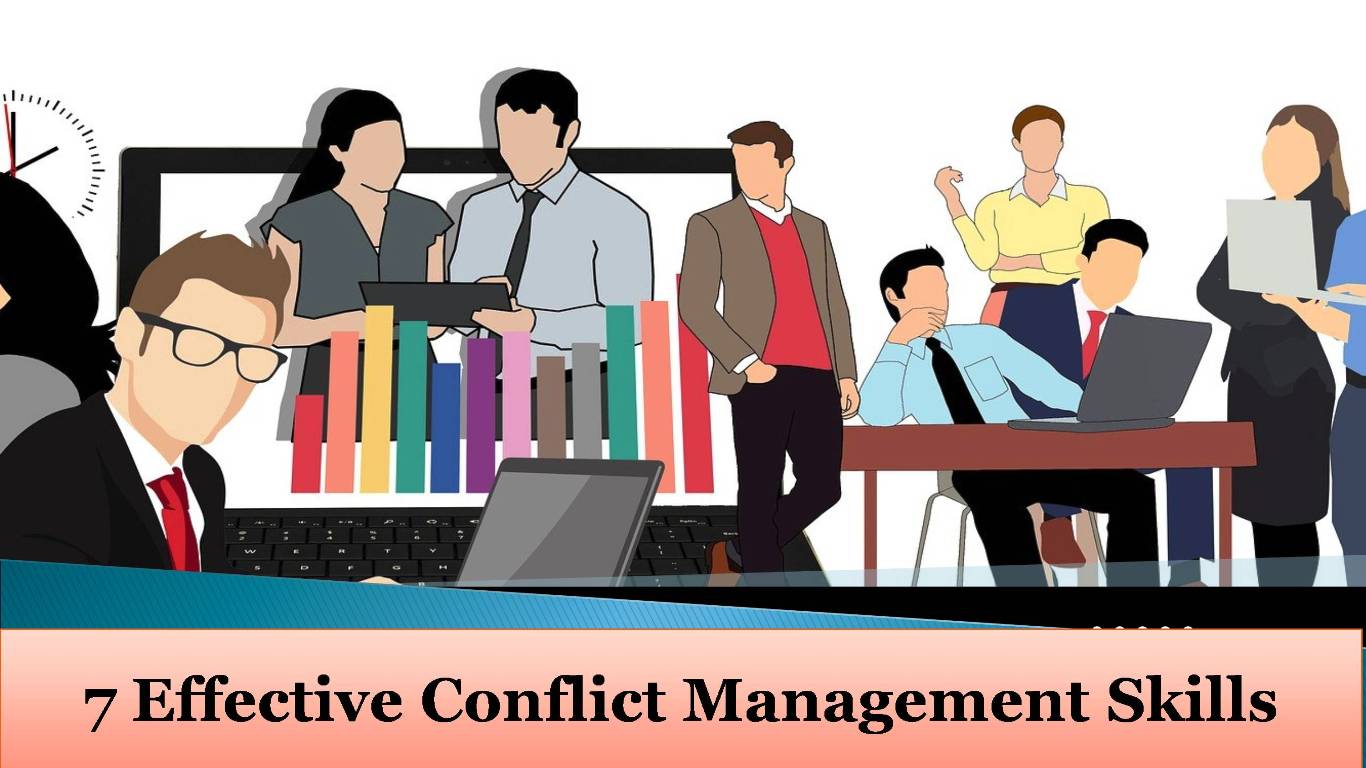The conflict could arise between employees, teams, management, and anyone in the organization. Controlling the conflict is one of the primary roles for the administration because if it is not controlled, it will lead to a short-term and long-term loss for them.
You can handle issues with your neighbors, relatives, and others with a better understanding. Without further delay, let’s go deep into conflict management skills.
Table of Contents
What exacly conflict management skills are?
Like any other skill, conflict management skills are all about handling conflict and converting negative conflicts into positive ones. Conflict is inevitable but controllable; that is the good part of it.
Conflict management helps in creating a positive and collaborative environment for every stakeholder, and business gets a high flying growth. But controlling conflict has never been easy for managers.
Conflict resolution asks for skills, strategies, and any corrective actions to take at the right time. If you have conflict handling skills, it helps in better professional life and helps in personal life.
As an entrepreneur or manager, you have to keep all your employees motivated enough for good and quality work. But there is some cold war between two employees to get particular recommendations from you for further career growth. Obviously, this will create a conflict, and here a manager needs to take corrective actions for better handling. Conflict management skills come into play in this scenario.
Conflict Management Skills –
1. Communication skills
There is nothing as effective as effective communication skills, which can make and break the deal. It involves body language, voice modulation, voice pitch, straightforwardness, softness, and much more.
Do not use any inappropriate or hurtful language; instead, ensure that the exact meaning of communication is conveyed to the other person. Speak precisely and in an authoritative way to deal with conflict.
2. Active listening
Those who cannot listen feel an inability to speak well. Yes, it’s true. Communication is all about being an active listener and understanding the thoughts and words of the other person. Be an active listener and show respect to the person who is speaking.
Do not be judgmental before knowing all the facts and figures in the details for better conflict resolution. When you listen, you understand the other person’s perspective, and then you apply your other skills and strategies for conflict problem solutions.
3. Show positive attitudes and empathy
What if you have already made up your mind that the conflict cannot be resolved. Mind is the biggest friend and foe for all of us. You should always be involved in the resolution process without any preoccupations about anything. That will bring positive attitudes in you, and you practice empathy towards others.
Showing empathy enables you to understand the needs, wants, motivations, and goals of the other persons, and you become highly capable of conflict handling. Take feedback from your colleagues for various opinions and trust-building.
Besides that, when you remain positive, you know conflict or mistakes happen, and it is controllable. You work in the right direction to change the conflict in a better way or work for corrective measures.
4. Problem-solving skills
Calling conflict a problem is problematic. Why we say, this is because conflict also brings positive changes and competitiveness in the organization. However, as a manager, your role is to deal with conflict impacting the organization in the wrong way.
Look for viable, creative, and acceptable solutions to the conflict. Use the collaborations with others and try to get into the details of underlying issues for fair resolution of the conflict.
5. Apply your other skills
Why have we put this genetic sub-heading because conflict is not a linear process, it is multi-faceted, and not every skill becomes suitable everywhere? We are taught not to apply emotional intelligence as it will lead to conflict getting unnecessarily worse. But, emotion becomes a potent tool for conflict solutions when used in a better way.
So as a manager, you have complete freedom to apply every other skill you have for an early and ideal conflict solution.
6. Positive attitudes
It helps avoid conflicts and fights as the person focuses on the brighter side of the coin instead of blaming games. Human beings make mistakes, and those who accept them work on not repeating those mistakes, whereas the hostile persons try to play a blame game. Avoid indulging in the backbiting, useless gossiping, and over-thinking about someone, leading to bad performance and spoiling of the relationships.
7. Ignoring minor things
It is not necessary to poke your nose at each and everything. Whether you are at the lower hierarchy of the management or the higher, there will be something, which requires your ignorance. It is advisable not to waste your energy on unnecessary things that are not related to you.
Let’s say, unless and until anyone’s personal life is not hampering the professional life, you should not bother about that. Simply ignore it and focus on the right things.
Ways to Enhance your conflict management skills
- Work on all the skills mentioned above in your day-to-day life.
- Enroll in a skills enhancement workshop.
- Take feedback from your colleagues, parents, friends, and others and work on skills where you are lacking.
- Have some patience and try to get a good understanding of body language.
- Remain available for group discussions, open discussions, and engagement with people from diverse backgrounds.
Conclusion –
At the workplace, people with varying personalities and responsibilities work together for the betterment and growth of the organization. Whenever the different roles and character comes to play, the eruption of conflict is quite natural. Get hold of conflict resolution skills, and you will surely get a tremendous amount of success in your personal and professional life.
External links –
